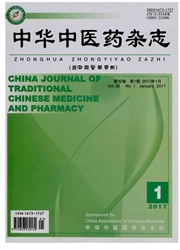

 中文摘要:
中文摘要:
目的:探讨从中医体质评估入手,运用个体化综合干预手段,对调整中医偏颇体质、改善糖调节受损(IGR)状态的作用。方法:随机抽取2009年4月-2012年4月参加体检的糖调节受损患者60人,随机分为干预组和对照组,均进行中医体质评估。干预组采取个体化干预,调整其中医偏颇体质;对照组给予常规健康指导。观察两组3个月前后体质量指数、血压、空腹血糖(FPG)、餐后2h血糖(2h BG)、糖化血红蛋白(Hb A1c)的变化情况。结果:干预组干预前后比较,FPG、2h BG、Hb A1c均明显降低且具有统计学意义(P〈0.01);干预组优于对照组,差异有统计学意义(P〈0.01)。结论:通过饮食、运动等生活方式和个体化中医体质干预,调整高度相关的中医偏颇体质,可降低IGR患者血糖水平,改善IGR患者的预后,达到有效防控2型糖尿病的目的。
 英文摘要:
英文摘要:
Objective: From the evaluation of TCM constitution, to investigate the effect of adjustment of the TCM biased constitutions to improve the condition of impaired glucose regulation (IGR) by individual comprehensive intervention. Methods: 60 IGR patients participated in the examination from April 2009 to April 2012 were randomly divided into intervention group and control group, all patients were assessed by questionnaires of TCM constitution. The intervention group took individual interventions to adjust its biased constitution, the control group received conventional health guidance. After 3 months, the changes of body mass index (BMI), blood pressure (BP), fasting plasma glucose (FPG), 2 hour postprandial blood glucose (2hBG) and glycosylated hemoglobin (HbAlc) were observed and compared with 3 months ago. Results: compared with before intervention levels of FPG, 2hBG in intervention group were decreased after intervention (P〈0.01). The intervention group was better than control group (P〈0.01). Conclusion: The TCM biased constitutions could be adjusted through diet, exercise or other lifestyle and individual TCM constitution intervention, which could reduce the blood glucose in IGR patients, and was helpful in improving the prognosis of IGR patients, achieving the purpose of effective prevention and control of type 2 diabetes mellitus.
 同期刊论文项目
同期刊论文项目
 同项目期刊论文
同项目期刊论文
 期刊信息
期刊信息
